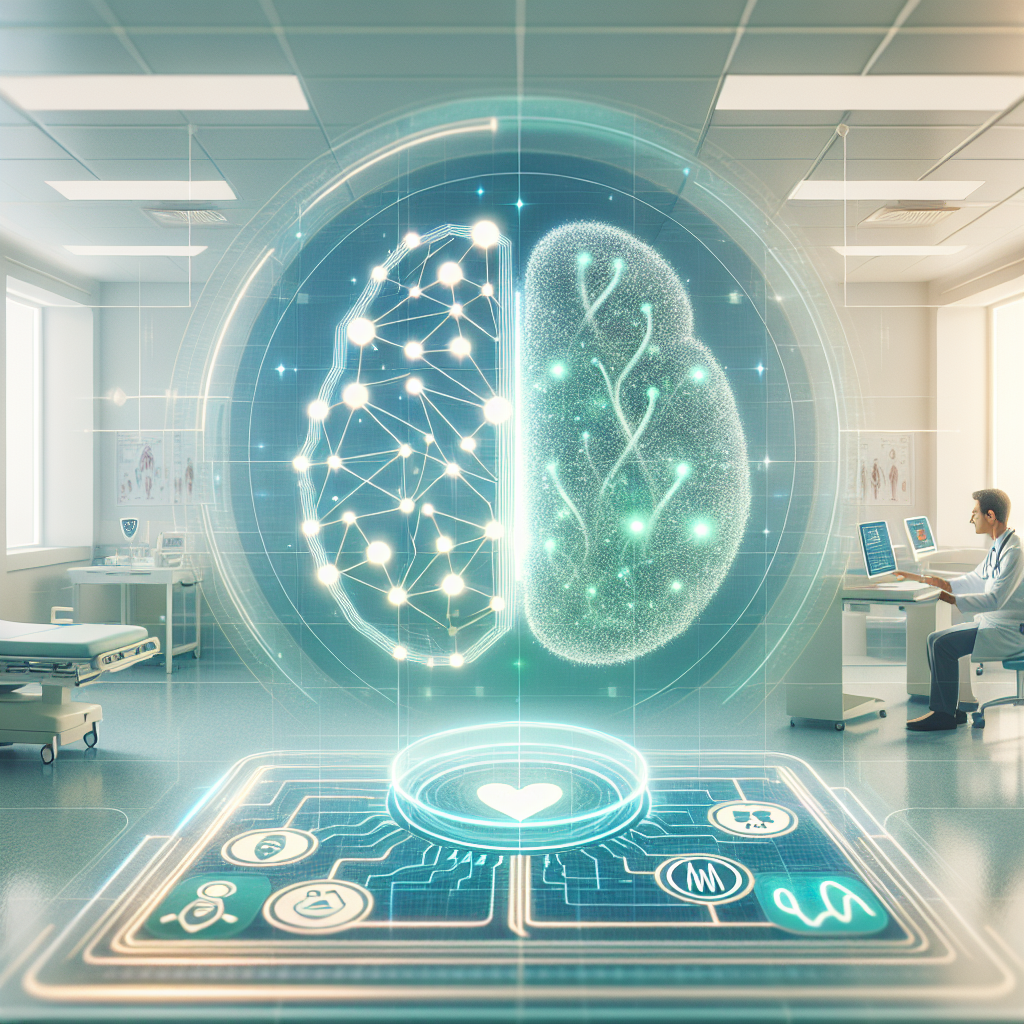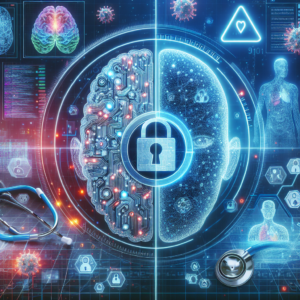
The healthcare industry is undergoing a transformation driven by technological advancements, particularly in Artificial Intelligence (AI). AI promises groundbreaking improvements in diagnostics, personalized treatment, and patient outcomes. However, as with any significant innovation, these advancements come with their own set of challenges—none more prominent than the issue of patient privacy. The collection, storage, and use of sensitive healthcare data by AI systems are raising concerns over the security and ethical use of such data. In a healthcare context, where trust and confidentiality are paramount, these challenges must be addressed to balance the benefits of AI with the protection of patients’ privacy rights.
This article will delve into the role of AI in healthcare, highlight its potential benefits, and discuss the ethical and privacy concerns that arise when AI is integrated into patient care. It will also explore regulatory measures, propose solutions for ensuring privacy, and emphasize the importance of responsible AI development in maintaining patient trust.
The Role of AI in Healthcare
AI technologies have begun to influence virtually every aspect of healthcare, from administrative tasks to medical procedures. By using machine learning and deep learning algorithms, AI has the potential to drastically reduce human error, streamline processes, and improve patient outcomes. However, the effective use of AI hinges on access to large volumes of data—much of which is sensitive personal health information.
1 AI in Diagnostics and Early Detection
One of the most promising applications of AI in healthcare is its use in diagnostics and early detection. AI systems can analyze medical imaging (such as MRIs, CT scans, and X-rays) with remarkable precision, often identifying issues that might be missed by human doctors. For example, AI models trained on vast amounts of radiological data have demonstrated the ability to detect cancers, fractures, or neurological disorders more accurately and quickly than traditional methods.
Machine learning algorithms can also analyze electronic health records (EHR) and clinical data to predict potential health risks. AI can detect subtle patterns that may not be immediately visible to doctors, offering insights into conditions such as diabetes, heart disease, or rare genetic disorders. By identifying risk factors early, AI can enable healthcare providers to intervene sooner, improving long-term patient outcomes.
2 AI in Personalized Medicine
AI also promises to personalize medicine to an unprecedented degree. By using patient-specific data—such as genetic profiles, family history, lifestyle factors, and even real-time health metrics from wearable devices—AI systems can recommend individualized treatment plans. This tailored approach is particularly beneficial in oncology, where the efficacy of treatments varies greatly from one patient to another.
AI-powered platforms can analyze genomic data to predict how a patient will respond to specific drugs, making it easier to choose the right medication with minimal side effects. This personalized approach reduces the trial-and-error process and can lead to faster, more effective treatments.
3 Robotic Surgery and Assistance
Robotic surgery, enhanced by AI, is another rapidly advancing field in healthcare. AI-powered surgical robots offer unparalleled precision, enabling doctors to perform minimally invasive procedures with greater accuracy and less risk of complications. These robots can process large amounts of data in real-time, adjusting their movements based on a patient’s anatomy and specific surgical needs.
For instance, systems like the da Vinci Surgical System and other AI-powered robots can assist surgeons in performing complex procedures such as prostate surgery, cardiac surgery, and spinal operations. The integration of AI allows these robots to learn from previous surgeries, continually improving their precision and effectiveness over time.
Patient Privacy Concerns in the Age of AI
While AI has transformative potential in healthcare, the use of large amounts of personal health data raises critical concerns about patient privacy. As AI algorithms are increasingly used to analyze health data, ensuring the privacy and security of this information is paramount.
1 The Importance of Health Data
Health data is vital for AI algorithms to function effectively. Patient data, including clinical records, diagnostic imaging, test results, genetic profiles, and even data from wearable devices, serves as the training set for machine learning models. This data is used not only to develop predictive models but also to personalize treatment plans, identify potential drug responses, and detect emerging health risks.
However, the sensitive nature of health information means that it must be handled with the utmost care. Mishandling, misuse, or unauthorized access to this data could result in significant harm to patients, including identity theft, discrimination, or even psychological harm.
2 Data Security Risks
With the shift toward digital health records and the integration of AI in healthcare, the risk of cyberattacks on healthcare organizations has grown significantly. Healthcare institutions are increasingly being targeted by hackers, as medical data is valuable and often less protected than financial information. High-profile data breaches, such as those that have affected hospitals and insurers in recent years, highlight the vulnerabilities of the healthcare sector.
AI systems themselves are also susceptible to exploitation. If malicious actors gain access to AI models, they could manipulate data inputs, skew diagnostic results, or access private patient information. For example, a breach in an AI system used for diagnosing cancer could compromise not only the data but also the diagnostic accuracy, endangering patient health.
To mitigate these risks, healthcare organizations must invest in robust cybersecurity measures, including encryption, access controls, and secure data storage solutions. Additionally, AI models should be regularly audited for vulnerabilities to ensure their integrity and prevent unauthorized access.
3 Informed Consent and Data Ownership
As AI becomes more integrated into healthcare, the issue of patient consent and data ownership becomes increasingly important. While patients have the right to access and control their health data, they often don’t fully understand how their information is being used by AI systems. Data sharing agreements, consent forms, and privacy policies should be clear and transparent, ensuring patients are fully informed about how their data will be used and by whom.
Moreover, there is growing concern over who owns health data once it has been collected. Does the patient retain ownership, or do healthcare providers and AI companies have the right to use this data without further consent? These questions are central to discussions about privacy in the era of AI, and governments and regulatory bodies must establish clearer rules to ensure that patients’ rights are respected.
The Ethics of AI Decision-Making in Healthcare
1 The Risk of Algorithmic Bias
AI systems are inherently dependent on the quality and diversity of the data they are trained on. If the data used to develop AI models is biased—whether due to a lack of representation of certain populations or systemic inequalities—the outcomes produced by AI can also be biased. In healthcare, this can have serious implications for patient care, potentially leading to misdiagnoses or inequitable treatment.
For example, AI systems trained predominantly on data from one ethnic group may not perform as well when analyzing patients from other demographic groups. This could result in inaccurate diagnoses, delayed treatments, and unequal access to care. Addressing bias in AI requires careful attention to the diversity of the data used in training, as well as ongoing testing and validation to ensure fairness across different patient populations.
2 The Role of Human Oversight
AI should be viewed as a tool to augment healthcare professionals, not replace them. While AI can assist in diagnostics and treatment planning, the final decision should always involve human judgment. Doctors, nurses, and other healthcare professionals bring critical experience, intuition, and empathy to patient care—qualities that AI cannot replicate.
Ethical guidelines should require that AI-driven decisions are always subject to human oversight. For example, in situations where a patient’s health is at risk or when the AI produces conflicting recommendations, human doctors should be responsible for making the final call.
3 Accountability in AI Decisions
As AI systems become more involved in healthcare decision-making, questions of accountability arise. If an AI system makes an error—such as providing an incorrect diagnosis or recommending an ineffective treatment—who is responsible? Is it the healthcare provider who used the AI system, the developers of the AI, or the institution that implemented the technology?
Establishing clear guidelines for accountability in AI healthcare applications is essential to ensure that patients are not left without recourse in the event of harm. It is crucial for regulatory frameworks to be developed that address these concerns and outline who is liable when AI systems are involved in clinical decision-making.
Balancing Innovation with Privacy: Regulatory and Legal Frameworks
1 HIPAA and Data Privacy Laws
In the United States, the Health Insurance Portability and Accountability Act (HIPAA) plays a pivotal role in protecting patient privacy. HIPAA sets strict standards for the security of health information and governs how it can be shared between healthcare providers, insurers, and other entities. While HIPAA has helped protect patient privacy, the rapid rise of AI technologies has exposed gaps in these regulations, particularly around data sharing and AI-driven decision-making.
As AI continues to evolve, lawmakers may need to update HIPAA to address new concerns related to data access, transparency, and patient consent. Similarly, new privacy regulations tailored to AI in healthcare may be necessary to ensure that AI innovations respect patient rights.
2 Global Privacy Regulations
Internationally, regulations like the European Union’s General Data Protection Regulation (GDPR) have made strides in protecting personal data. The GDPR gives individuals control over their data, including the right to access, correct, and delete their information. These regulations are especially important as AI in healthcare becomes a global phenomenon, with data often being shared across borders.
Aligning global regulations to address AI-driven healthcare challenges will be essential for maintaining consistent privacy standards. Governments worldwide must collaborate to create frameworks that balance technological progress with privacy protections.
AI has the potential to revolutionize healthcare, offering improvements in diagnosis, treatment, and patient outcomes. However, the integration of AI into healthcare must be handled carefully to safeguard patient privacy. By addressing concerns about data security, algorithmic bias, informed consent, and ethical decision-making, healthcare providers, AI developers, and regulators can ensure that AI technologies are used responsibly.
Visit our other website: https://synergypublish.com




